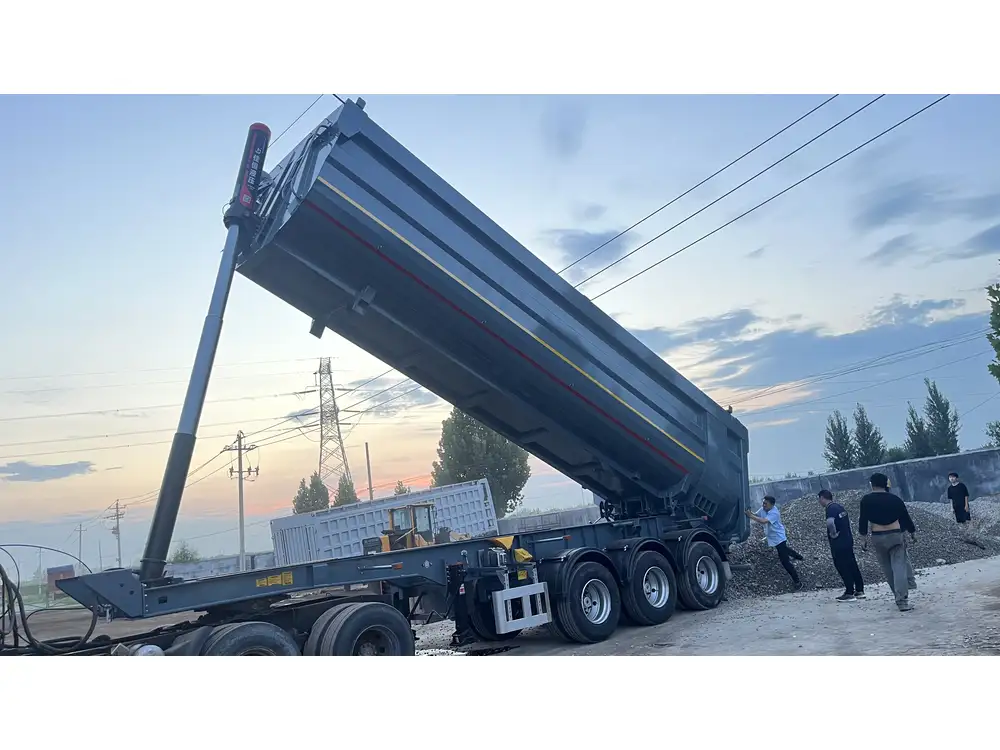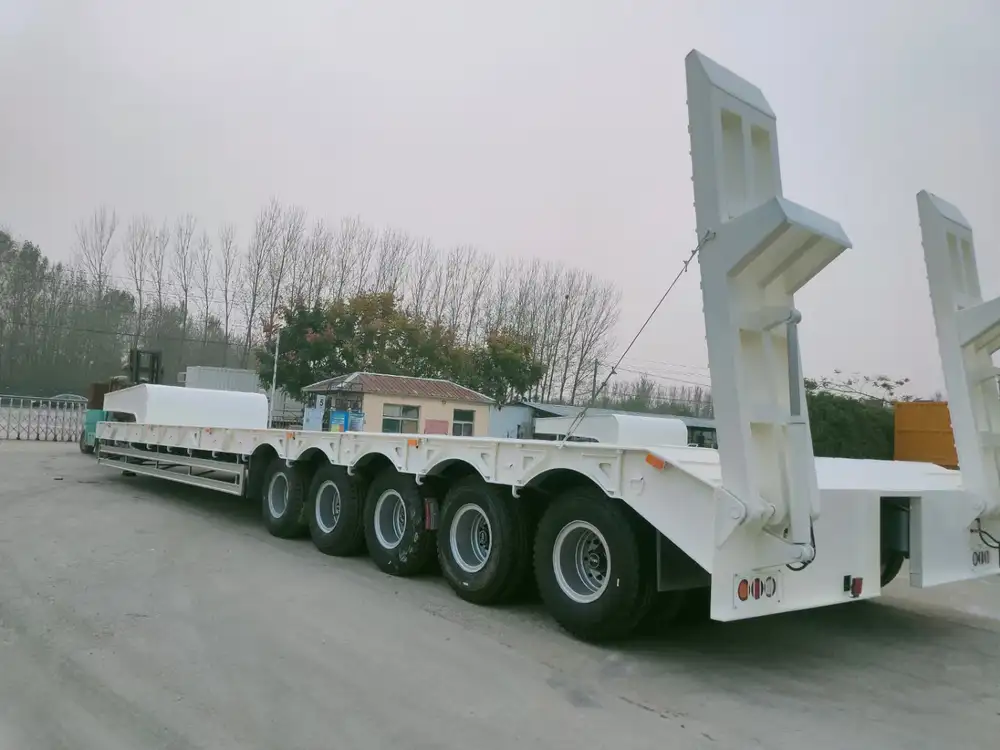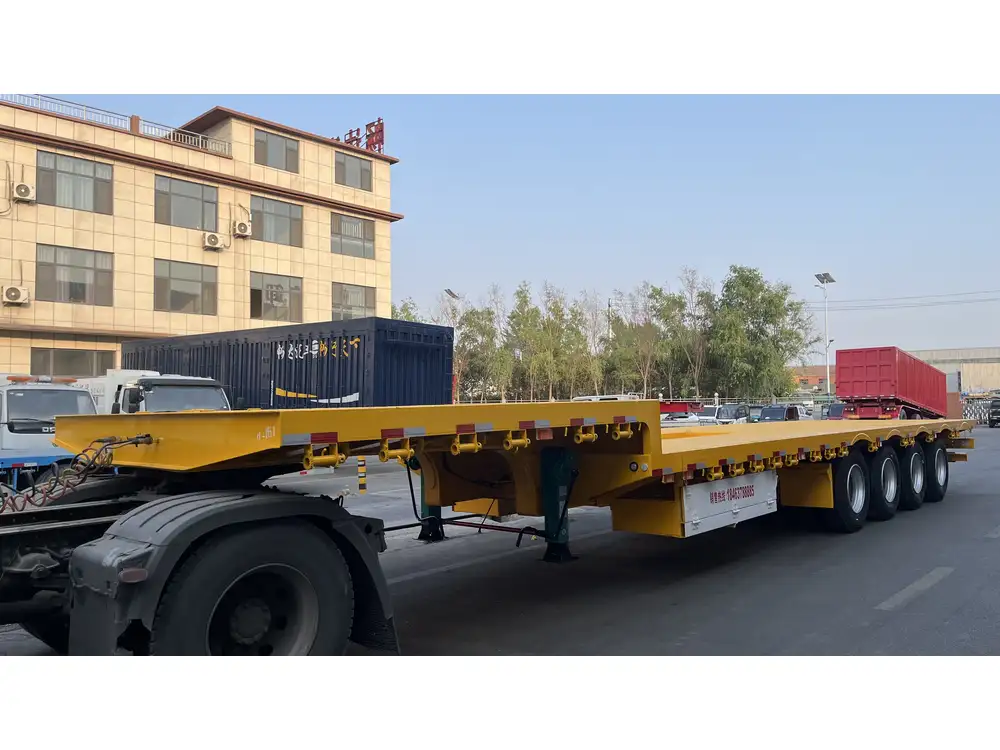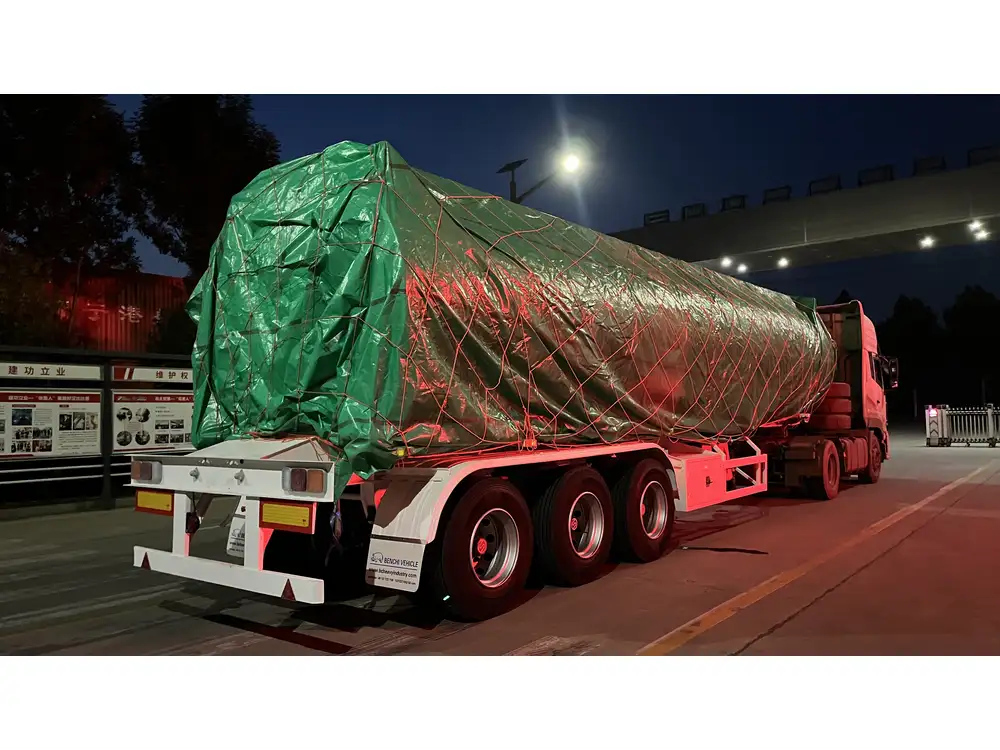In the dynamic landscape of the United Kingdom’s transportation and logistics sector, fuel tanker capacity plays a pivotal role in ensuring seamless operations. At CarMax Trailer, we understand that selecting the right fuel tanker capacity is not merely a logistical decision but a strategic one that can significantly impact your business’s efficiency, compliance, and bottom line. This comprehensive guide delves into the intricacies of fuel tanker capacities in the UK, offering insights to help you make informed decisions that align with your operational needs and regulatory requirements.
Understanding Fuel Tanker Capacities in the UK
Fuel tankers come in various sizes, each tailored to meet specific transportation needs. In the UK, fuel tanker capacities typically range from small 2,800-liter tankers to larger 40,000-liter models. The capacity you choose hinges on several factors, including the nature of your business, delivery frequency, and the regulatory framework governing fuel transportation.
Standard Capacity Classes
| Tanker Class | Capacity Range (liters) |
|---|---|
| Small Tankers | 2,800 – 5,000 |
| Medium Tankers | 5,000 – 15,000 |
| Large Tankers | 15,000 – 30,000 |
| Extra-Large Tankers | 30,000 – 40,000 |
Each class serves distinct purposes, from local deliveries requiring agility to long-haul transports necessitating larger volumes.

Regulatory Framework Governing Fuel Tankers
Navigating the regulatory landscape is crucial for any fuel transportation business in the UK. The Health and Safety Executive (HSE) and the Driver and Vehicle Standards Agency (DVSA) set stringent regulations to ensure safety and environmental compliance.
Key Regulations to Consider
- ADR Classification: Determines the type of cargo and necessary safety measures.
- Vehicle Standards: Compliance with vehicle construction standards specific to fuel tankers.
- Driver Qualifications: Ensuring drivers possess the appropriate licenses and training.
- Environmental Standards: Adhering to emission and spill prevention regulations.
Understanding and adhering to these regulations is imperative to avoid penalties and ensure the safe transportation of fuel.
Types of Fuel Tankers and Their Capacity Ranges
Fuel tankers vary not only in size but also in design, tailored to specific transportation needs and cargo types.

Common Types of Fuel Tankers
- Asset Tankers: Designed for the transportation of diesel, petrol, and kerosene.
- ISO Tank Containers: Standardized containers suitable for intermodal transport.
- Product Tankers: Specialized for transporting refined petroleum products.
Capacity Ranges by Tanker Type
| Tanker Type | Typical Capacity (liters) |
|---|---|
| Asset Tankers | 5,000 – 15,000 |
| ISO Tank Containers | 10,000 – 26,000 |
| Product Tankers | 15,000 – 30,000 |
Selecting the appropriate tanker type and capacity ensures compatibility with your delivery routes and cargo requirements.
Factors Influencing Your Choice of Fuel Tanker Capacity
Choosing the right fuel tanker capacity involves a multifaceted analysis of your operational needs and market dynamics.

Key Considerations
- Delivery Volume: Assessing daily, weekly, and monthly fuel demand.
- Route Length: Longer routes may benefit from larger capacities to reduce the frequency of trips.
- Storage Facilities: Evaluating on-site storage capacities and infrastructure.
- Cost Implications: Balancing initial investment with long-term operational costs.
- Fleet Compatibility: Ensuring new tankers integrate seamlessly with existing fleets.
By carefully assessing these factors, you can determine the most efficient tanker capacity that supports your business objectives.
Comparative Analysis of Fuel Tanker Capacities
A comparative analysis can illuminate the strengths and limitations of various fuel tanker capacities, aiding in strategic decision-making.
Small vs. Large Tankers
| Feature | Small Tankers | Large Tankers |
|---|---|---|
| Capacity | 2,800 – 5,000 liters | 15,000 – 30,000 liters |
| Maneuverability | High; suitable for urban areas | Lower; better for long-haul routes |
| Initial Cost | Lower | Higher |
| Fuel Efficiency | Lower per liter carried | Higher per liter carried |
| Frequency of Trips | Higher required | Fewer required |
Selecting between small and large tankers depends on your specific operational context, balancing agility with capacity needs.

Benefits of Optimizing Fuel Tanker Capacity
Choosing the optimal fuel tanker capacity can yield significant advantages across various aspects of your business.
Enhanced Operational Efficiency
- Reduced Transit Frequency: Larger capacities can decrease the number of trips needed, saving time and fuel.
- Improved Load Management: Efficiently matching tanker capacity with demand reduces overstocking and stockouts.
- Cost Savings: Lower operational costs through reduced fuel consumption and vehicle wear and tear.
Compliance and Safety
- Regulatory Adherence: Ensuring compliance with capacity-related regulations minimizes legal risks.
- Safety Enhancements: Properly sized tankers mitigate the risk of accidents and spills.
By optimizing capacity, businesses can enhance both their operational and safety standards.

Technological Advancements in Fuel Tanker Design
Innovations in tanker design have revolutionized fuel transportation, offering improved capacity utilization and safety features.
Notable Technological Innovations
- Advanced Material Usage: Lightweight yet durable materials reduce overall tanker weight without compromising capacity.
- Smart Monitoring Systems: Real-time tracking of fuel levels, temperature, and pressure enhances operational oversight.
- Modular Designs: Flexible tanker configurations allow for easy customization based on capacity needs.
Embracing these technologies can lead to increased efficiency and reliability in fuel transportation.
Safety Considerations Related to Tanker Capacity
Safety is paramount in fuel transportation, and tanker capacity plays a critical role in risk management.

Key Safety Aspects
- Stability and Handling: Proper weight distribution ensures tanker stability, especially when fully loaded.
- Spill Prevention: Adequate capacity reduces the likelihood of overfilling and fuel spills during transit.
- Emergency Response: Larger tankers are equipped with enhanced safety features to manage potential accidents effectively.
Prioritizing safety through appropriate capacity selection safeguards both personnel and the environment.
Maintenance and Operational Tips for Various Tanker Capacities
Regular maintenance ensures that fuel tankers operate efficiently and safely across all capacity ranges.
Maintenance Best Practices
- Routine Inspections: Regular checks for wear and tear, especially in high-capacity tankers.
- Cleaning Protocols: Thorough cleaning to prevent residue buildup and contamination.
- Component Upkeep: Maintaining critical components like pumps, valves, and safety devices.

Operational Strategies
- Efficient Loading Practices: Adhering to loading guidelines to maintain tanker balance.
- Driver Training: Ensuring drivers are knowledgeable about handling tankers of different capacities.
- Scheduled Servicing: Timely servicing to preemptively address potential issues.
Implementing these practices extends the lifespan of your tankers and ensures smooth operations.
CarMax Vehicle’s Approach to Fuel Tanker Capacity
At CarMax Vehicle, we specialize in designing and manufacturing fuel tankers that cater to the diverse capacity needs of UK businesses. Our tankers are engineered with precision, incorporating the latest technological advancements to deliver optimal performance and safety.
Customization and Flexibility
- Tailored Designs: Customizable features to meet specific capacity requirements and operational needs.
- Scalable Solutions: Modular tanker designs that allow for easy capacity adjustments as business demands evolve.

Commitment to Quality and Compliance
- Rigorous Testing: Ensuring all tankers meet and exceed regulatory standards.
- Quality Materials: Utilizing high-grade materials to enhance durability and longevity.
Partnering with CarMax Vehicle ensures that your fuel transportation needs are met with excellence and reliability.
Conclusion
Selecting the appropriate fuel tanker capacity is a nuanced decision that directly influences your operational efficiency, compliance, and overall business success. By understanding the various capacity options, adhering to regulatory standards, and leveraging technological advancements, you can optimize your fuel transportation operations. At CarMax Trailer, we are committed to providing high-quality, customizable fuel tankers that meet the evolving needs of the UK market, empowering your business to thrive in a competitive landscape.
Frequently Asked Questions

1. What factors should I consider when choosing a fuel tanker capacity for my business in the UK?
When selecting a fuel tanker capacity, consider your delivery volume, route length, storage facilities, operational costs, and fleet compatibility. Assessing these factors helps ensure that the chosen capacity aligns with your business needs and regulatory requirements.
2. How do regulatory standards affect fuel tanker capacity in the UK?
Regulatory standards, set by bodies like the HSE and DVSA, dictate specific requirements for fuel tanker capacities, including safety features, vehicle standards, and driver qualifications. Compliance with these regulations is essential to avoid legal penalties and ensure safe fuel transportation.
3. What are the benefits of using larger fuel tankers for long-haul routes?
Larger fuel tankers are more fuel-efficient per liter carried and reduce the frequency of trips needed for long-haul routes. This leads to cost savings, improved operational efficiency, and reduced environmental impact through lower overall fuel consumption.

4. Can CarMax Vehicle customize fuel tankers to specific capacity needs?
Yes, CarMax Vehicle specializes in customizable fuel tanker designs. We tailor our tankers to meet specific capacity requirements and operational needs, ensuring that your fuel transportation is both efficient and compliant with UK standards.
5. What maintenance practices are essential for ensuring the longevity of fuel tankers?
Essential maintenance practices include routine inspections for wear and tear, thorough cleaning protocols to prevent contamination, regular upkeep of critical components, and scheduled servicing to address potential issues proactively. These practices help maintain efficiency and extend the lifespan of your fuel tankers.



